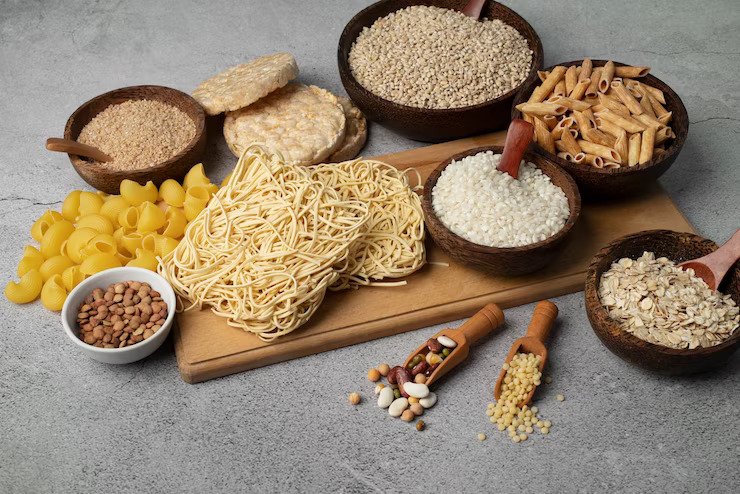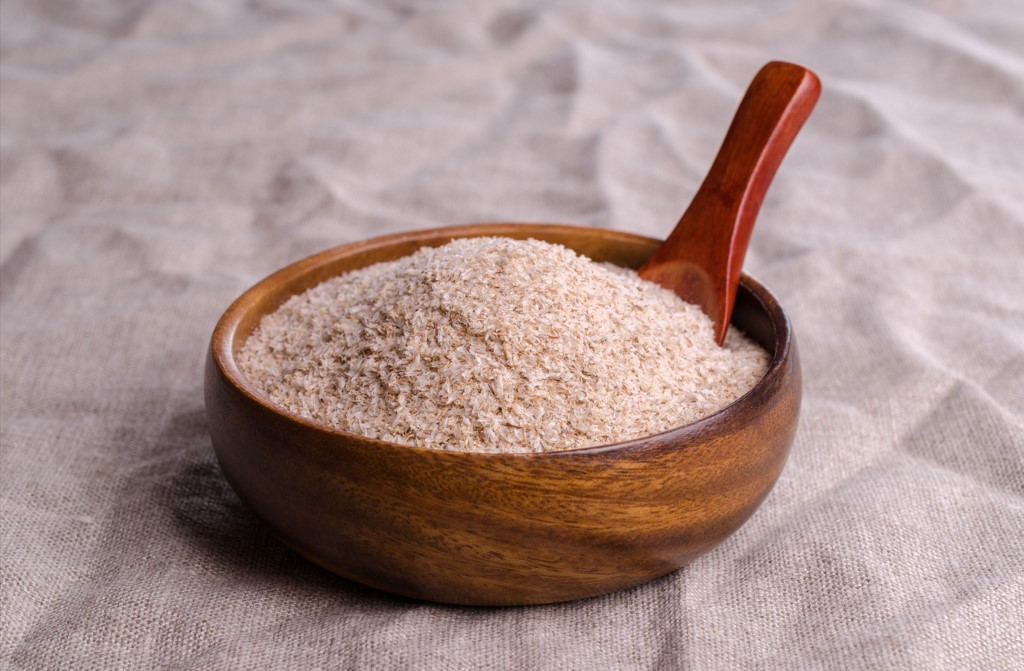Fiber is an important dietary nutrient that falls under the category of carbohydrates.
Even though fiber has countless health benefits, only a mere 5% of people actually meet their fiber intake needs! Because of this huge fiber gap, many fiber supplements have become popular solutions to reap fiber’s vast health benefits. Keep reading to find out who should use fiber supplements and whether should you take fiber supplements in the morning or at night.
What Does Fiber Do For The Body?
Fiber is often lumped into a category, but there are actually several different types of fiber that have varying helpful functions in the body. The broad definition of fiber is simply a complex carbohydrate molecule that the body can’t digest.
This doesn’t mean that the fiber has no impact on the body as it travels through the digestive tract, but rather that human digestive enzymes aren’t capable of breaking fiber down into smaller components to gain caloric value and energy.
The benefits that come from fiber are instead related to how the gut microbes in the gastrointestinal tract interact with it, how it changes the composition and constituency of stool, as well as the speed of digestion.
What these benefits translate into in real-life is relief from constipation, reduced instances of diarrhea, better gut health, lower cholesterol, less blood sugar spikes, and healthy body weight. Fiber achieves all this in a complex set of bodily interactions.
Firstly, certain kinds of fiber are hydrophilic and draw water into the digestive tract. This helps to bulk up stools and give them a consistency that makes for easy elimination. Both constipation and diarrhea can be helped by this action since constipation often arises from dry, dense stools, and diarrhea often occurs when stools lack adequate substance.
Another interesting way fiber improves health is by slowing down the speed of digestion. Not all types of fiber do this, but the ones that do are able to help with healthy weight maintenance since it promotes a feeling of fullness.
It also is beneficial for blood sugar regulation since a meal with fiber will slow down the digestion of sugars in the meal and therefore reduce the severity of blood sugar spikes which can otherwise have a number of damaging effects.
Fiber is also able to reduce LDL cholesterol by trapping certain fats in the intestines so they aren’t absorbed through the intestinal lining. Fiber is so effective at this that many doctors will either recommend a high-fiber diet or fiber supplements as a treatment method for high cholesterol. Patients can expect to see significantly reduced LDL cholesterol numbers in as little as four weeks!
The final impact fiber has on health comes from what’s known as fermentable fiber or prebiotic fiber. These types of fiber are consumed by microbes in the gut, which creates a range of health-inducing byproducts like short-chain fatty acids. This also allows the microbe population in the gut to thrive, which offers an incredible range of downstream benefits, such as improved mental health, increased energy, and better cognitive functioning.
With all of these benefits in mind, it’s now important to determine what foods or supplements provide which types of fiber and what their corresponding benefits are.
Types of Fiber

Though most people will tell you there are only two kinds of fiber, there are actually five. The main classification is soluble vs insoluble. This determines whether the fiber attracts water into the digestive tract (soluble) or whether it acts as dietary roughage that sweeps the digestive tract clean (insoluble).
Beyond this, there are viscous fibers and non-viscous fibers, as well as fermentable and non-fermentable. Viscous fibers form thick gels when combined with water and are especially well-known for promoting the feeling of fullness. Fermentable fibers are fibers that gut microbes consume, and they’re especially helpful in improving gut health.
Soluble Fiber Sources
Non-Viscous + Fermentable
- Bananas
- Asparagus
- Garlic
- Onions
- Artichokes
Viscous + Fermentable
- Wheat
- Oats
- Apples
- Carrots
- Citrus
Viscous + Non-Fermentable
- Psyllium husk
Insoluble Fiber Sources
Non-Viscous + Non-Fermentable
- Legumes
- Leafy greens
- Strawberries
- Peaches
Non-Viscous + Fermentable
- Potatoes
- Rice
- Legumes
Fiber Supplements
Fiber supplements are a natural solution for resolving low-fiber diets. Though it’s usually preferable to get enough fiber from food alone, there are many cases where this is either difficult or impossible.
Those who follow a FODMAP diet because of gut illnesses, for example, often find it difficult to consume enough fiber from food alone. Keto-diet advocates are also at high risk of under consuming fiber and would likely do well with a supplement. There are also many individuals who simply prefer the simplicity of adding a supplement as opposed to overhauling their entire diet. They generally contain a range of different kinds of fiber and therefore are an easy way to reap all of the various benefits from each.
When To Take Fiber Supplements

The most important thing to determine after choosing a fiber supplement is when to take them. Many dietary experts recommend taking fiber in the morning before eating or several times throughout the day before meals. Both of these options can work well, depending on the goal of taking them and individual lifestyle tendencies.
The benefit of taking them before a meal is that they can help to slow down digestion and avoid blood sugar spikes and overeating. The benefit of taking them in the morning is that they can help promote good digestion for the rest of the day.
The most important thing to consider when taking fiber supplements, that’s far more important than the timing, is simply to consume them with an adequate amount of liquid. Experts generally recommend drinking a glass of water alongside fiber supplements to give them adequate moisture to form gel-like substances in the body and to prevent any digestion discomfort.
It’s also best to avoid consuming dietary fiber immediately before bed. This can be taxing on the digestive system at a time when it’s not at its peak, which can lead to bloating and discomfort.
Conclusion
Overall, fiber supplements can be a wonderful way to improve your health and are an easy addition to any lifestyle. It’s always best to consult with a healthcare practitioner to ensure the correct dosage and form, as well as to account for any contraindications.
Read Also:




























